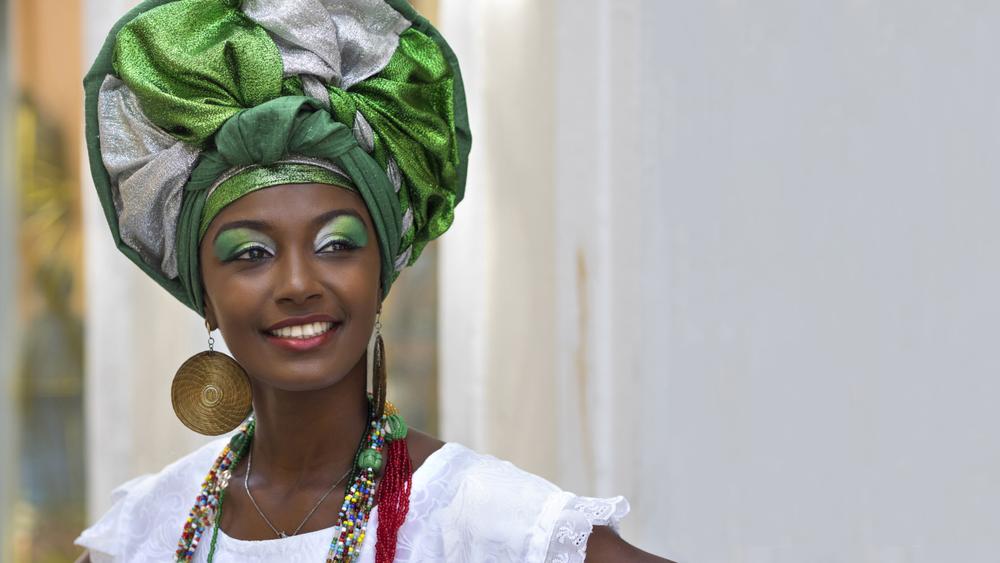Features
Daniel Adebayo: Nation-Building is The Roadmap to a New Nigeria
We must begin to look beyond the labels of religion and ethnicity, and instead, together as one, tap into the strength inherent in our diversity.

In the days building up to the last elections, one very common litany among the leading presidential candidates was “A New Nigeria.” You would have thought it was a play on words. While some Nigerians perceived it as political gimmicks, others believed that some of these candidates can truly deliver a new Nigeria. I believe only an objective analysis of the presidential candidates would have given us an idea of who meant their words. Elections in Nigeria are often interspersed with ethnicity, religion, and sometimes sex cards. This means there’s a high probability that candidates are picked based on biases. So we never know who wants a new Nigeria and who doesn’t.
Although elections are poised to be divisive, Nigeria becomes divided even before the electioneering processes. For years and especially now, the level of distrust between Nigerians and their government has been at an all-time high. The cause of this dates back to years of maladministration and selfish decisions by the ruling class, which has put the country in its current political terrain. Nigeria’s teeming youth population has, sadly, inherited this mindset. With little or no trust in the government, they question every government’s policy. While some argue that the #EndSARS debacle was the straw that broke the camel’s back, some others have argued that if only the youths came to the dialogue table earlier, the insurrection that took place at the Lekki Toll Gate would never have happened. The youths on the other hand believe that coming to the dialogue table would have led to a compromise of the process by the political class. Moreso, the main reason they were on the streets in the first place was that, after years of calling for a stop to police brutality, the government had turned a deaf ear and, in certain cases, continued promising to change things but never did.
Nigerians are hurt. The political class has not kept to their part of the social contract. The ripple effect of the civil war, followed closely by years of military incursion and bad democratic governance, is what has led to the huge gap between the citizens and the public servants. Over time, Nigerians have chosen to deal with their pain in several – and, I dare say, unhealthy – ways. For some, they have simply taken the route of “when we get there, we will take what is ours.” Others have taken the route of “Let’s all go our different ways.” There’s also the class of those who are satisfied as long as the current government works for them, and then those who blame the government for every of their misfortune. Some have chosen to contribute their quota to building the Nigeria of their dream. But the truth remains that hope for a new Nigeria is now seen as something only those with privileges have. Where do we go from here? Is a new Nigeria a hoax?
A new Nigeria is possible. But creating a new Nigeria is a multifaceted concept, as it holds different meanings for different individuals. Some view it as breaking free from economic struggles, while others see it as adopting innovative policies similar to leading global economies. There are those who believe that cutting governance costs is essential, while some consider a young leader to be the key to a successful Nigeria. Although each viewpoint has merit, it is crucial to recognise that prosperous nations with ambitious policies began by building their foundations. To achieve a new Nigeria, nation-building should be the priority.
A nation at war with itself can’t thrive. A nation where the governed see the government as enemies will naturally come across bottlenecks in their bid to execute policies. A nation where distrust has eaten deep into its fabric cannot make any remarkable progress. A case in point would be the current administration. Love or hate him, President Buhari embarked on some ambitious projects in the past 8 years of his administration. However, some of the things that have undermined these successes are the issue of insecurity, agitations in different sections of the country, and distrust in leadership at all levels of government. Nevertheless, he made some far-reaching constitutional amendments that could change the trajectory of our country, if only we invested in nation-building.
We need to heal to progress as a nation. The Southeast, for example, hasn’t fully healed from the hurt occasioned by the civil war. We still pay the price of neglecting the healing process today. This hurt, sadly, has been passed from generation to generation. This path of neglect is a dangerous one to tow. There is a need for an honest conversation on divisive issues of this kind.
For a start, the political class must seek to renew its social contract with citizens, but this time on the foundation of transparency, competence, and accountability. The tenets of equity, justice, and fairness must be upheld. Leadership must be combined with empathy and we must seek to unite our country, regardless of our diverse political affiliations. Building a nation where, beyond our tribes and religions, we see ourselves as one is imperative. A loud shattering of the stereotypic glasses should be on the to-do list of nation-builders.
The political class must begin to see their job description as a call to service, and not a means to living large. Leadership comes with a moral obligation, and a leader has no business toying with things that can undermine the fabric of the nation’s existence. As citizens, we must begin to look beyond the labels of religion and ethnicity, and instead, together as one, tap into the strength inherent in our diversity.
Another critical point of the process of nation-building is sacrifice. The need for sacrifice in the process of building a nation further underscores the importance of uniting the country, against all odds. Citizens must understand that the office of a citizen is an important one. It behoves them with a delicate responsibility. As citizens, we bear a crucial responsibility in determining our country’s outcomes. We must fulfil this responsibility impartially and with the nation’s interests at heart, contributing to nation-building regardless of political affiliations, as long as core values and principles are not compromised.
Nigeria’s political system needs a complete overhaul. Currently, the system rewards godfatherism, incompetence, and longevity in the game over competent leadership and political will. Unfortunately, politics is the only means through which people committed to good governance can attain power. Many of these individuals with good intentions do not understand or engage in politics in the Nigerian way, which puts them at a disadvantage. However, they must persevere, stay consistent, and remain committed to the cause, despite the challenges. Breaking through an age-old system will require significant effort, but we can succeed if we don’t lose faith.
A new Nigeria is achievable, however, nation-building must take the front seat.
***
Feature Image: Dreamstime
Do you want to become a BellaNaija contributor? We’re currently accepting submissions, send an email to [email protected]



















